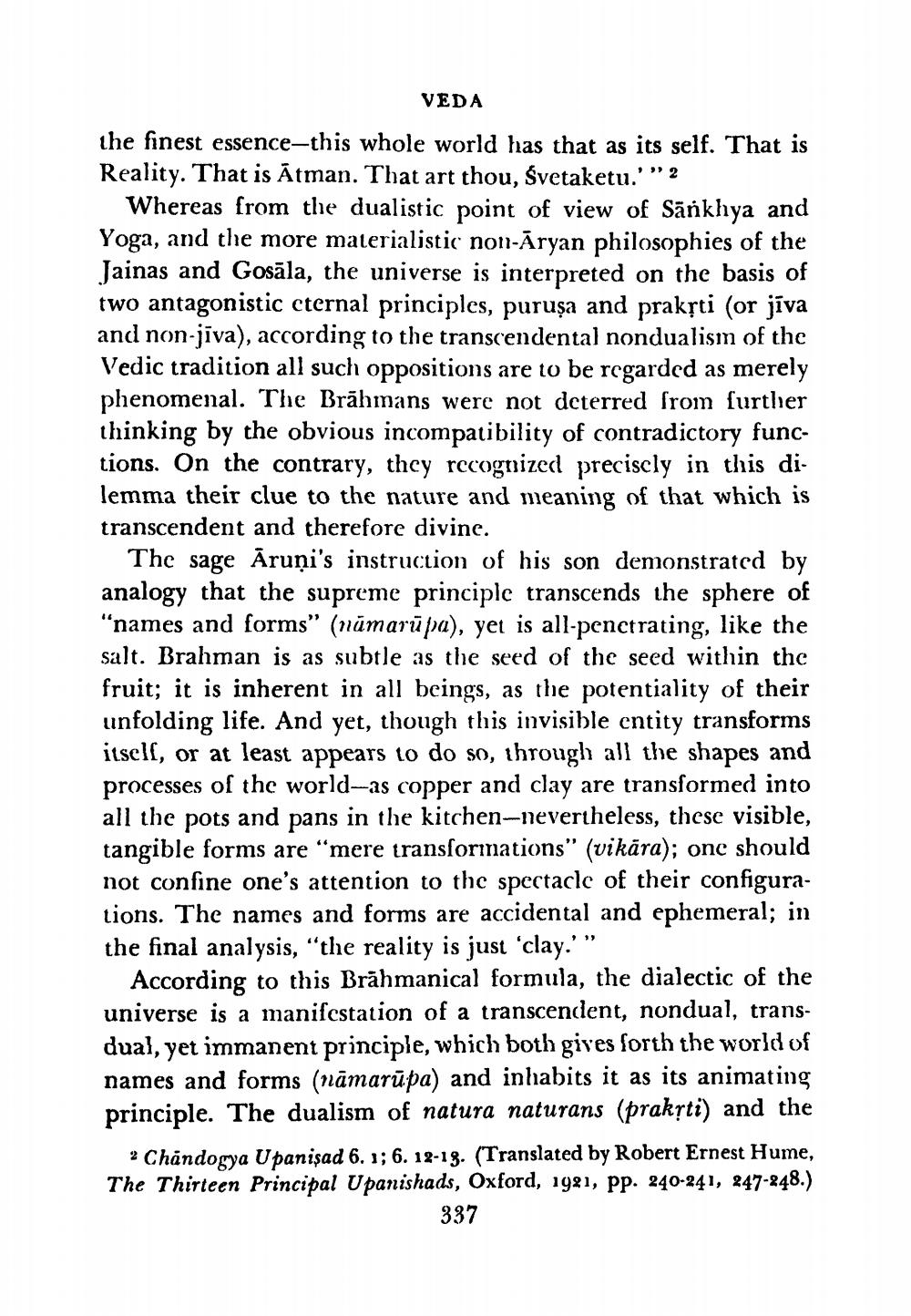________________
VEDA
the finest essence-this whole world has that as its self. That is Reality. That is Atman. That art thou, Svetaketu.'" 2
Whereas from the dualistic point of view of Sankhya and Yoga, and the more materialistic non-Aryan philosophies of the Jainas and Gosāla, the universe is interpreted on the basis of two antagonistic cternal principles, puruşa and prakṛti (or jīva and non-jiva), according to the transcendental nondualism of the Vedic tradition all such oppositions are to be regarded as merely phenomenal. The Brahmans were not deterred from further thinking by the obvious incompatibility of contradictory functions. On the contrary, they recognized precisely in this dilemma their clue to the nature and meaning of that which is transcendent and therefore divine.
The sage Āruņi's instruction of his son demonstrated by analogy that the supreme principle transcends the sphere of "names and forms" (nāmarupa), yet is all-penetrating, like the salt. Brahman is as subtle as the seed of the seed within the fruit; it is inherent in all beings, as the potentiality of their unfolding life. And yet, though this invisible entity transforms itself, or at least appears to do so, through all the shapes and processes of the world-as copper and clay are transformed into all the pots and pans in the kitchen-nevertheless, these visible, tangible forms are "mere transformations" (vikāra); one should not confine one's attention to the spectacle of their configurations. The names and forms are accidental and ephemeral; in the final analysis, "the reality is just 'clay.'"
According to this Brahmanical formula, the dialectic of the universe is a manifestation of a transcendent, nondual, transdual, yet immanent principle, which both gives forth the world of names and forms (nāmarupa) and inhabits it as its animating principle. The dualism of natura naturans (prakṛti) and the
2 Chandogya Upanisad 6. 1; 6. 12-13. (Translated by Robert Ernest Hume, The Thirteen Principal Upanishads, Oxford, 1921, pp. 240-241, 247-248.) 337




